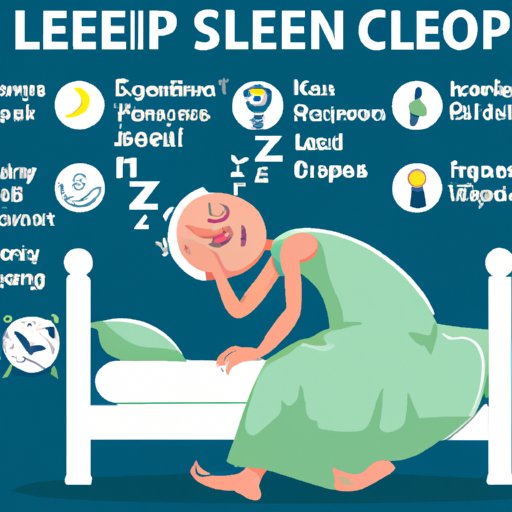
What Happens if You Do Not Sleep for 3 Days?
Sleep deprivation is a common problem that affects millions of people around the world. It is often characterized by the inability to fall asleep, stay asleep, or achieve a restful night’s sleep. When sleep is inadequate or absent, it affects various aspects of life, including mood, productivity, and overall health.
In this article, we are going to explore what happens if you do not sleep for three days. The article is intended for individuals who are interested in understanding the effects of sleep deprivation on their lives and how to remedy the situation.
The Physical and Mental Effects of Three Days Without Sleep
Not sleeping for three days can have significant physical and mental effects on the body. The immediate effects include fatigue, mood swings, irritability, and exhaustion. It can also lead to physical weakness, making it difficult to perform simple tasks. After a while, the symptoms of sleep deprivation become more severe, leading to hallucinations and other problems.
The long-term effects of sleep deprivation are even more alarming. If you continue to deprive yourself of sleep, you can experience cognitive decline, memory problems, and long-term health complications such as obesity, diabetes, and heart disease.
Therefore, the physical and mental effects of not sleeping for three days are severe and can be detrimental to your quality of life.
The Dangerous Consequences of Staying Awake for 72 Hours
Staying awake for 72 hours straight puts your body at risk for serious health complications. Sleep deprivation weakens the immune system, which makes the body more susceptible to infections. This can lead to more frequent illnesses and prolonged recovery times.
In addition to the weakened immune system, sleep deprivation can also contribute to the development of chronic conditions such as high blood pressure, cardiovascular disease, and metabolic disorders. Accidents that can result from sleep deprivation include drowsy driving, falls, and injuries from poor coordination.
The Science behind Sleep Deprivation and its Impact on the Body
Sleep is essential to maintain good health. The absence of sleep affects various parts of the brain, leading to cognitive and emotional impairments. The sleep cycle includes five stages, with the first stage setting in shortly after falling asleep. The second stage is the lightest phase of sleep, followed by the third and fourth stages, which are the deepest stages.
The fifth stage is called REM sleep and is the stage where the most significant body restoration and energy renewal takes place. The circadian rhythm regulates the sleep cycle and is the internal clock that tells you when it is time to sleep and when to wake up.
When you don’t get enough sleep, your circadian rhythm is disrupted, leading to a range of negative effects.
From Hallucinations to Health Risks: The Dangers of Not Sleeping for Three Days
As mentioned earlier, one of the most apparent symptoms of sleep deprivation of three days or more is hallucinations. However, the symptoms of sleep deprivation go beyond hallucinations and can be indicative of a more significant underlying condition.
Studies have shown that chronic sleep deprivation is linked to increased inflammation and insulin resistance, leading to higher risks of developing chronic conditions such as obesity and type II diabetes.
Therefore, it’s important to monitor the symptoms of sleep deprivation and address them immediately to prevent the development of long-term health complications.
The Importance of Sleep: What Happens When You Choose to Stay Awake for Three Days
It is essential to prioritize sleep and sleep regularly to maintain good health. In addition to preventing the negative effects of sleep deprivation, adequate sleep also provides numerous health benefits such as improved mood, increased productivity, and a reduced risk of developing chronic health conditions.
To improve sleep quality, individuals can try various strategies such as creating a relaxing sleep environment, avoiding caffeine, and establishing a regular sleep routine. If symptoms persist despite efforts to improve sleep quality, it is essential to seek medical attention as soon as possible.
Conclusion
Sleep deprivation is a common problem that affects individuals of all ages. In this article, we have explored the dangers of not sleeping for three days and why it is essential to prioritize sleep. By paying attention to the symptoms of sleep deprivation and implementing healthy sleep habits, individuals can improve their quality of life and reduce the risk of developing long-term health complications.
To avoid the negative consequences of sleep deprivation, it is vital to seek help if symptoms persist. Let us prioritize our sleep and health and live a fulfilling life.





